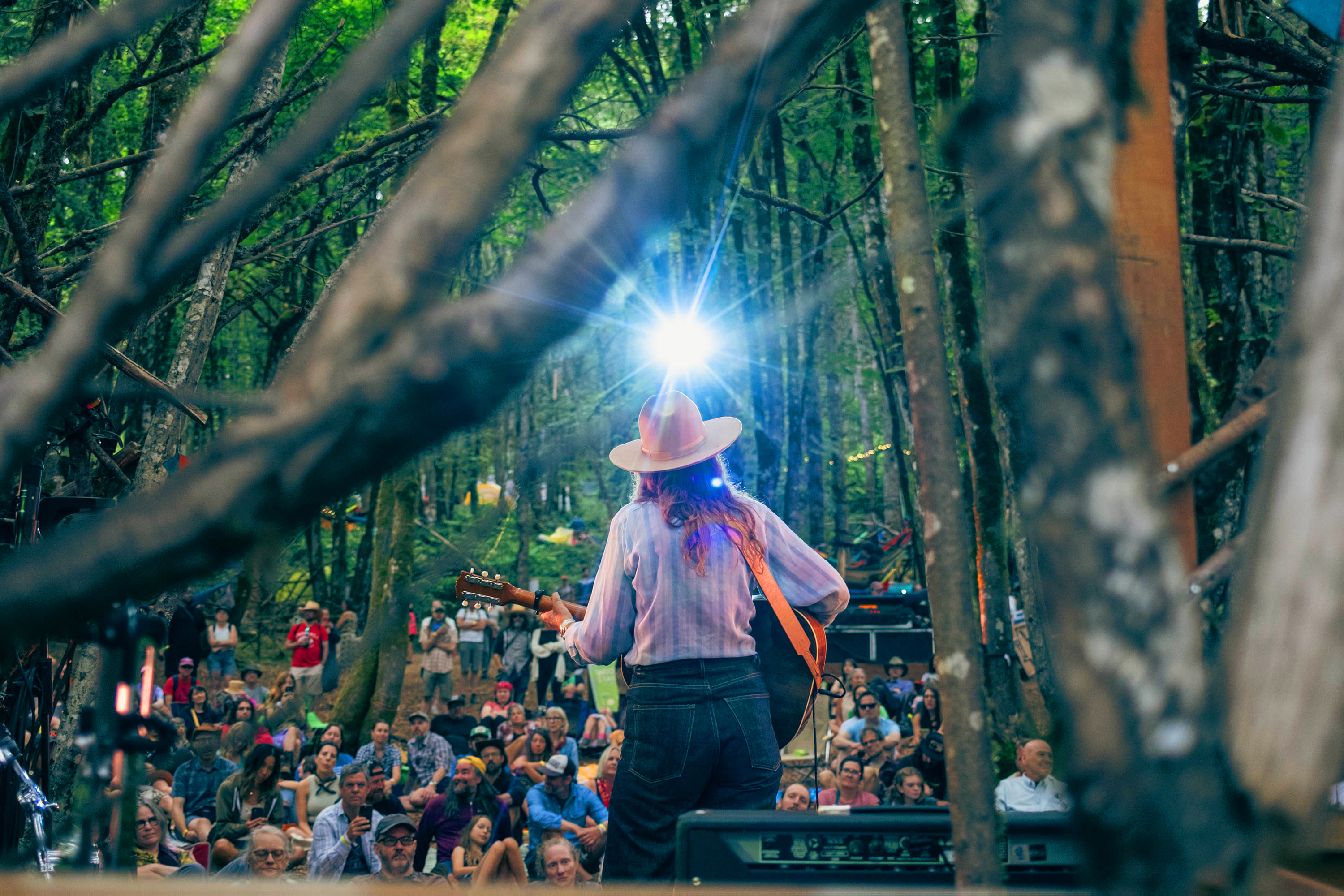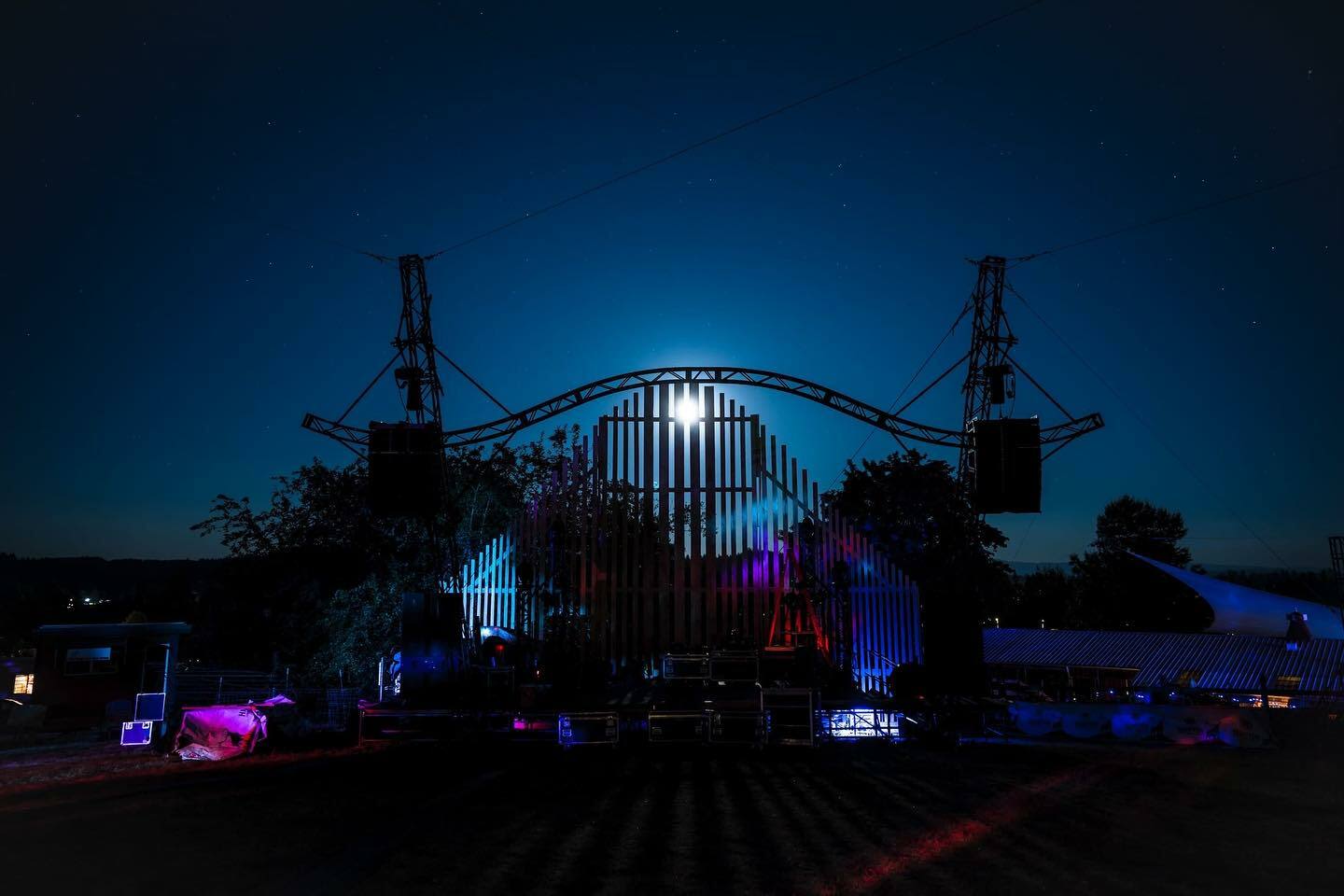Can Pickathon Survive its Own Success?

Image: Leah Nash
At the end of last year’s Pickathon music festival, New York pianist Marco Benevento played on a stage made of branches, deep in the woods of Pendarvis Farm. Several hundred people watched from amid the trees—but so too did 28,000 fans who were nowhere nearby. A half-dozen cameras filmed the set; the signal ran up an antenna, and then bounced tree to tree to a command center, where it was edited and streamed online.
From the same stage earlier in the weekend, indie chanteuse Feist had proclaimed that Pickathon is what every other festival only tries to be. Indeed, for 16 years the little festival, returning August 1–3, has worked to stand apart from bigger, sweatier, profit-obsessed rivals in the fast-growing industry. Pickathon caps attendance at 3,500, leaving plenty of room to roam a musical fantasyland lovingly created on a verdant 88-acre farm in Happy Valley.
The festival sells no corporate sponsorships. Its reusable beer garden cups are stainless steel, water is free, and children run freely. Pickathon’s future, however, may depend on cameras in the trees as much as on its crafted vibe. A labor of love with part-time organizers, Pickathon often loses money unless it sells out. (A price increase last year pushed sales down to just 2,300 passes.) “We’ve limited attendance and made the choice not to exploit the festival with sponsorship,” says Pickathon director Zale Schoenborn. “That forces us to think: how can we make a business model?”
At last year’s Pickathon, a team of 183 people—mostly volunteers—shot and edited 600 hours of video footage. Between shows, lead producer Ryan Stiles inserted artfully filmed private performances, interviews, and high-quality “episodes,” bringing in established directors like Ondi Timoner (Dig!) to chronicle the fest from the point of view of select bands, backstage workers, and attendees.
The challenge is turning that content into money. Every option—ads on streaming videos, cutting a deal with Netflix or iTunes, a cable or web series—hits the same problem: how to pay royalties to scores of bands, in perpetuity. Schoenborn, an Intel engineer by day, is convinced this herculean accounting task can be automated. His team has turned to CASH Music, a Portland nonprofit dedicated to creating open-source business tools for musicians, to create that system.
“This is the biggest thing that’s hindering us,” Schoenborn says. “If we go forward before we figure it out, we probably kill the golden goose.” He hopes the collaborators will devise a platform this year. If they succeed, an event known for its well-crafted live ambience will create a whole new kind of music-fest experience—one available in the comfort of home.
Take a tour through Pickathon's concert videos from 2013:




